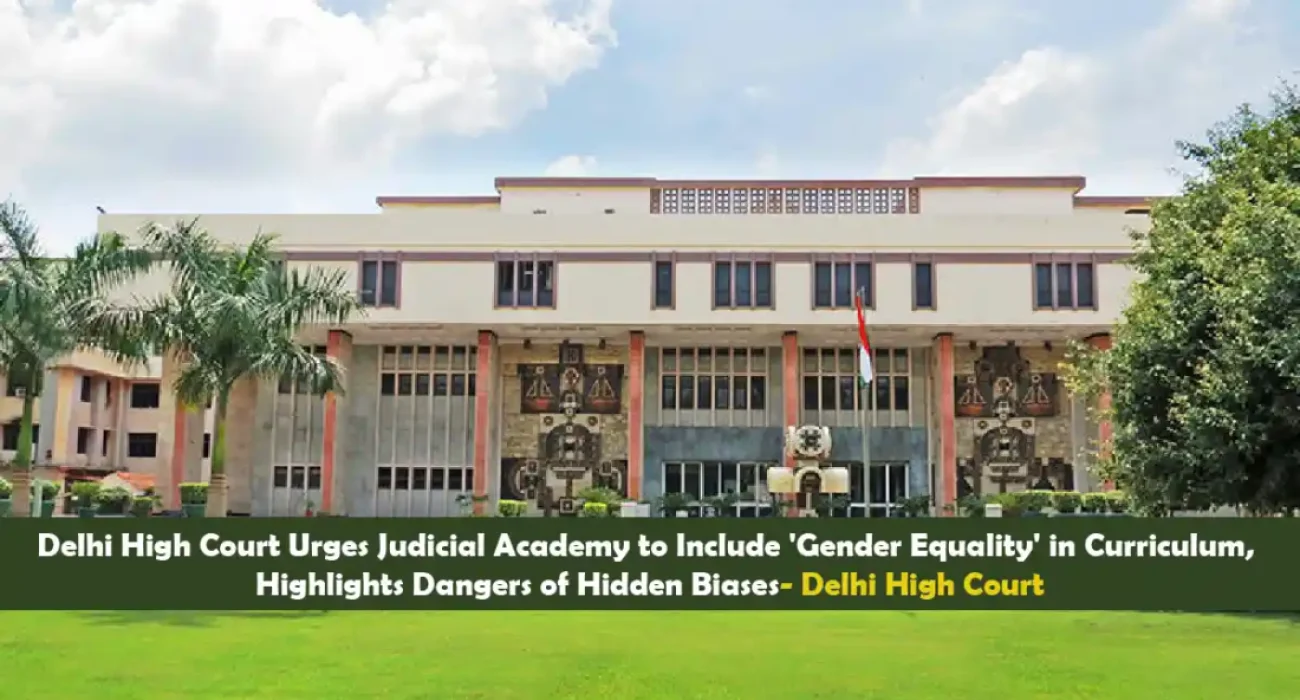

Table of Contents
ToggleThe Delhi High Court stressed how crucial it is to include topics like gender equality and cultural diversity in the Delhi Judicial Academy’s curriculum. Justice Swarana Kanta Sharma emphasized that judicial education should include knowledge of the various backgrounds and realities of those who appear before the court since concealed prejudices are harmful to fair and unbiased decisions.
A wife filed a complaint in this case under Sections 498A and 34 of the Indian Penal Code, 1860, against her husband and his family. The wife claimed that shortly after their marriage, her in-laws and husband made fun of her for not bringing a large enough dowry and made demands for more. When they got married, the husband and wife were both employed by the Delhi Police as sub-inspectors.
The wife who filed the petition claimed that her husband and in-laws were always harassing her and making demands for dowry. Because of her position as a police officer, she argued, the trial court’s decision to dismiss the accused was motivated by unjustified bias. The petitioner emphasized that neither the truth of her claims nor the gravity of the domestic abuse she endured should be diminished by her professional background.
The petitioner’s background in law enforcement and his professional knowledge, according to the respondents, which included the husband and his family, made the accusations unfounded. They asserted that it was unlikely for someone in her situation to be the victim of such crimes, implying that her experience as a police officer had given her the tools and information necessary to make up the accusations.
Judge Swarana Kanta Sharma noted that the trial court’s ruling was swayed by the prejudiced and unfounded belief that a male police officer could never be the victim of domestic abuse. The court emphasized how important it is for judges to maintain objectivity and make decisions solely on the merits of the case, without regard to prejudices based on gender or profession. The court emphasized the necessity of judicial training to address ingrained biases that could subtly influence judicial decisions, noting that these biases are frequently caused by societal norms and cultural attitudes.
The Delhi High Court declared the trial court’s decision to release the accused to be erroneous and unfounded in the concepts of fair trial and criminal jurisprudence, and thus overturned it. The court mandated that legal principles should be the primary focus of judicial education and training, but that it should also include an understanding of the varied backgrounds and lived realities of those who appear before the court. The court stressed that this strategy would help dispel societal preconceptions and produce more well-written, unbiased rulings.
The Delhi Judicial Academy was ordered by the court to include training that educates judges about the significance of writing decisions free from gender prejudices or professional stereotypes. To ensure that future judicial training programs include multiple awareness and sensitization conferences, the judgment was forwarded to the Delhi Judicial Academy’s Director of Academics for appropriate action and compliance.
To increase public trust and confidence in the legal system, Justice Sharma concluded that judges should write their decisions with impartiality and gender neutrality while remaining conscious of any hidden biases or perceptions.
– By Anaida Khan Pursuing 4th year of BALLB (Hons.) from Dharmashashtra National Law University, Jabalpur.
IAW resources
Browse our help directory